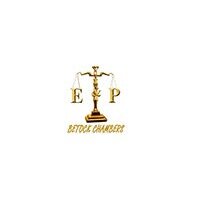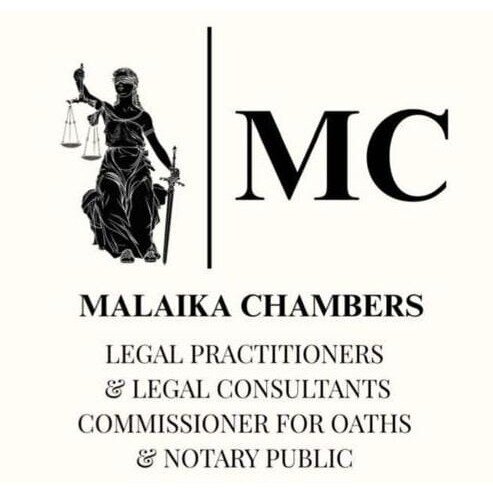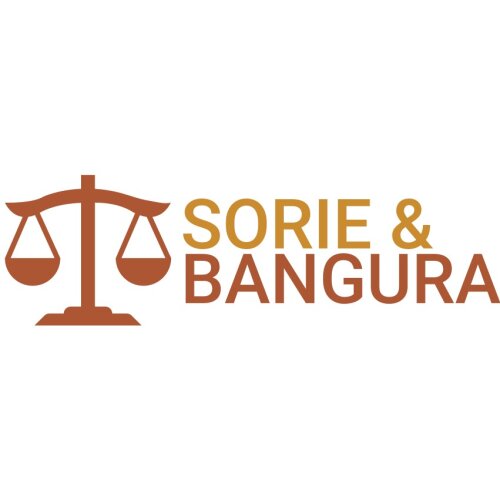Best Corporate & Commercial Lawyers in Sierra Leone
Share your needs with us, get contacted by law firms.
Free. Takes 2 min.
Or refine your search by selecting a city:
List of the best lawyers in Sierra Leone
About Corporate & Commercial Law in Sierra Leone
Corporate & Commercial law in Sierra Leone refers to the set of legal principles and rules governing the establishment, operation, and regulation of businesses of all types within the country. This field of law covers issues such as business formation, mergers and acquisitions, commercial contracts, regulatory compliance, investment, intellectual property protection, dispute resolution, and other commercial activities. Sierra Leone's legal system is a mixture of English common law, customary law, and local legislation. The corporate sector is primarily governed by statutes such as the Companies Act 2009, Investment Promotion Act 2004, and the Business Registration Act, among others.
Why You May Need a Lawyer
Engaging a lawyer in Sierra Leone for corporate or commercial matters is highly recommended due to the complexity of the legal landscape and the necessity of compliance. Common scenarios where legal help is essential include:
- Forming a new company or business entity
- Drafting or reviewing contracts and commercial agreements
- Negotiating and structuring mergers, acquisitions, or joint ventures
- Resolving business disputes, either through negotiation, arbitration, or litigation
- Complying with local regulations, licensing, and tax obligations
- Protecting intellectual property
- Foreign direct investments and navigating government incentives
- Employment law issues and labor disputes
- Dissolution or restructuring of businesses
- Managing compliance with anti-money laundering and anti-corruption laws
Local Laws Overview
The legal framework governing corporate and commercial activities in Sierra Leone is principally provided by the Companies Act 2009. Key aspects include:
- Company Formation: Businesses must register with the Corporate Affairs Commission. Both local and foreign investors can form limited liability companies, partnerships, and sole proprietorships.
- Corporate Governance: Sierra Leone law requires companies to have at least two directors and a company secretary. Annual returns and other statutory filings are mandatory.
- Business Licenses: All businesses must obtain the necessary licenses after registration based on the type of operations conducted.
- Contracts: Contracts must follow formalities outlined in the Contracts Act and be clear in their terms to be enforceable in court.
- Investment Laws: The Sierra Leone Investment Promotion Act encourages both local and foreign investment, offering incentives for specific sectors.
- Dispute Resolution: Commercial disputes can be resolved through the local courts or, in some instances, through Alternative Dispute Resolution methods.
- Employment & Labor: The Employment Act sets out rules for hiring, termination, employee rights, and health and safety within the workplace.
- Taxation: Businesses are subject to corporate tax, GST, and, depending on the sector, other levies and duties, regulated by the National Revenue Authority.
- Anti-Corruption: The Anti-Corruption Act and other allied laws aim to promote ethical conduct in commercial dealings.
- Intellectual Property: Companies can register trademarks, patents, and copyrights with the relevant government office to protect their creations.
Frequently Asked Questions
What types of business structures are available in Sierra Leone?
The main business structures are sole proprietorship, partnership, private limited company, and public limited company. Foreign entities may also establish branches or subsidiaries.
How do I register a company in Sierra Leone?
Company registration is done through the Corporate Affairs Commission. The process includes name reservation, submission of incorporation documents, payment of fees, and issuance of the certificate of incorporation.
Do I need a local partner to start a business as a foreign investor?
Foreign investors can wholly own companies in most sectors but may require local participation in areas restricted by law. It is advisable to verify sector-specific restrictions.
What are the ongoing compliance requirements for companies?
Companies must file annual returns, hold regular meetings, maintain accounting records, and comply with tax, labor, and regulatory filings.
How enforceable are contracts in Sierra Leone?
Contracts are generally enforceable if they meet legal formalities and are not contrary to public policy. Well-drafted agreements are crucial for enforceability.
How can business disputes be resolved?
Disputes may be resolved through negotiation, mediation, arbitration, or court litigation, depending on the circumstances and contract provisions.
Are there incentives for foreign investors?
Yes, the Investment Promotion Act offers incentives such as duty waivers and tax holidays, especially for investment in priority sectors.
What taxes will my business have to pay?
Corporate tax, Goods and Services Tax, PAYE (for employees), and sector-specific levies may apply. Registration with the National Revenue Authority is required.
What protections exist for intellectual property?
Trademarks, patents, and copyrights can be registered with the relevant authorities, granting legal protection against infringement.
What are the key labor laws for employers?
The Employment Act covers recruitment, working hours, leave entitlements, termination procedures, employee rights, and workplace safety. Written employment contracts are recommended.
Additional Resources
If you need further information or assistance, consider contacting the following resources in Sierra Leone:
- Corporate Affairs Commission - Company registration and regulatory guidance
- Sierra Leone Investment and Export Promotion Agency (SLIEPA) - Investment support
- National Revenue Authority - Tax registration and compliance
- Sierra Leone Bar Association - Directory of practicing corporate and commercial lawyers
- Ministry of Trade and Industry - Business licensing and sector-specific regulations
- Office of the Administrator and Registrar General - Intellectual property registrations
- Anti-Corruption Commission - Reporting and compliance for corruption-related issues
Next Steps
If you need legal advice or assistance in corporate and commercial matters in Sierra Leone, here is how you can proceed:
- Identify your specific legal issue or area of concern
- Gather related documentation, such as contracts, registration certificates, and correspondence
- Contact a qualified lawyer who specializes in corporate and commercial law
- Utilize the resources and governmental agencies listed above as appropriate
- Schedule a consultation to understand your rights, obligations, and the best way forward
- Take timely action to ensure compliance and manage potential legal risks effectively
Legal complexities can impact your business significantly. Getting the right legal guidance early can help you avoid costly mistakes, ensure compliance, and set your business up for long-term success in Sierra Leone.
Lawzana helps you find the best lawyers and law firms in Sierra Leone through a curated and pre-screened list of qualified legal professionals. Our platform offers rankings and detailed profiles of attorneys and law firms, allowing you to compare based on practice areas, including Corporate & Commercial, experience, and client feedback.
Each profile includes a description of the firm's areas of practice, client reviews, team members and partners, year of establishment, spoken languages, office locations, contact information, social media presence, and any published articles or resources. Most firms on our platform speak English and are experienced in both local and international legal matters.
Get a quote from top-rated law firms in Sierra Leone — quickly, securely, and without unnecessary hassle.
Disclaimer:
The information provided on this page is for general informational purposes only and does not constitute legal advice. While we strive to ensure the accuracy and relevance of the content, legal information may change over time, and interpretations of the law can vary. You should always consult with a qualified legal professional for advice specific to your situation.
We disclaim all liability for actions taken or not taken based on the content of this page. If you believe any information is incorrect or outdated, please contact us, and we will review and update it where appropriate.
Browse corporate & commercial law firms by service in Sierra Leone
Sierra Leone Attorneys in related practice areas.
Browse corporate & commercial law firms by city in Sierra Leone
Refine your search by selecting a city.













